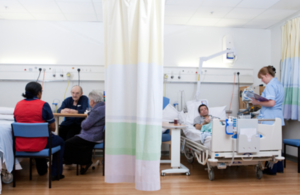Smaller hospitals have a future in the NHS, but need to change
Small district general hospitals can thrive but the way services are provided to local patients must change to guarantee quality care, according to a report from Monitor.

The way smaller hospitals provide services to local patients must change to guarantee quality care
Monitor economists analysed a comprehensive range of clinical and financial indicators to test whether any special factors affected the performance of hospitals with fewer than 700 beds (typically in trusts with an income of less than £300 million).
The research carried out by Monitor found no clear evidence that smaller acute hospitals performed any worse clinically than larger counterparts.
However, the analysis showed that there is evidence that smaller providers may be starting to face greater financial challenges, with performance worsening more than the sector as a whole in the last 2 years.
Monitor’s recommendations
The report concludes that size is likely to become more of an issue as hospitals face greater pressures to recruit staff to further improve the quality of care. Monitor recommends that the healthcare sector should:
- identify new models of care for patients, for example re-designing services to improve the integration of care and move it closer to home
- come up with creative ways to address the scale challenges, such as sharing staff with nearby trusts, using new technology, or building networks between smaller hospitals and major centres
- make sure that the right balance is struck in local communities between redesigning services and making sure patients are treated near to where they live
David Bennett, Chief Executive at Monitor, said:
People value their local hospitals and we wanted to understand the challenges that they face as the NHS takes on a potential £30 billion funding gap over the next decade.
We found that smaller hospitals are facing increasing challenges but with the system’s support can continue to play an important role in the nation’s health service.
Bigger isn’t always better and just merging or taking a ‘one size fits all’ approach to local health services is not the answer. We need to achieve the right balance between risks to quality and risks to access, and consider other constraints such as the impact of clinical specialisation to make sure patients continue to benefit from the local hospitals that they value so much.
Terence Stephenson, Chairman at The Academy of Medical Royal Colleges, said:
This is a valuable report and it has been welcome that Colleges have been able to provide advice and input through the Clinical Advisory Group established for the project. Providing the right services for patients in the right place that can be financially and clinically viable is one of the NHS’s absolutely key challenges.
It’s clear from this report that that there are no simple conclusions or answers to these questions. But the report provides the service with a useful base for taking forward thinking and practical action.